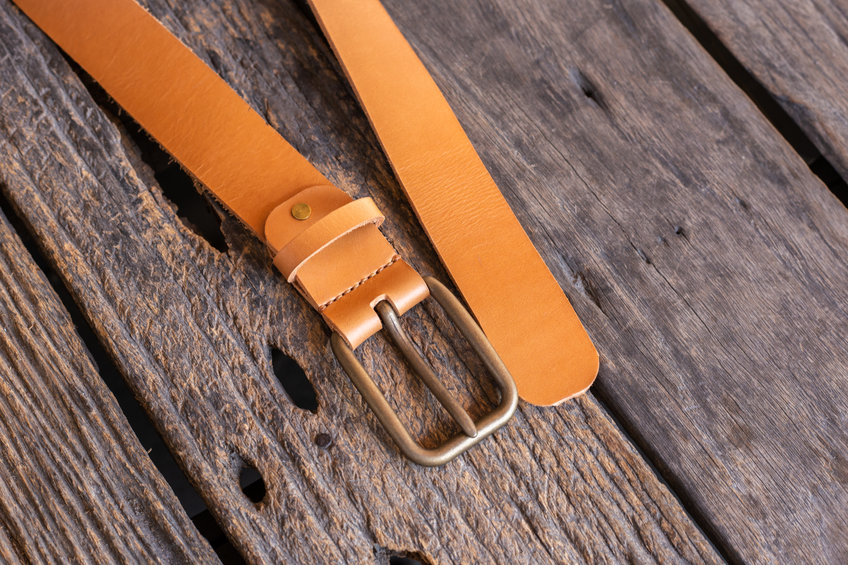What Happens If A Leather Belt Gets Wet?

We don’t usually dress for the day considering that the sunny morning might turn into rain. And as such, there may be a time when you’re stuck outdoors in a downpour and your favorite leather belt is getting pelted by the rain as you run for cover. Alternatively, in busy living, it’s certainly not uncommon for belts to get left on pants as they are pushed through the washing machine! Ouch!
The good thing about leather is that it’s durable – but is it THAT durable? Here’s what happens when leather gets wet and how you can try to fix it if you need to.
What Happens When Leather Gets Wet?

When wet, the oils in the skin of the leather bind together with the new water molecules. There is no effect when immediately wet, but when the water starts to dry and evaporate, it will draw out the remaining oil with it. When the leather loses these natural oils, it starts to become stiff and will lose its feel and quality. On top of this, water can also leave stains on the leather as it shifts the dye around, or it can even cause the leather to rot if the water doesn’t dry fast enough.
However, this also depends on the finish and treatment of the leather product. With high-quality products, you can get away with a little water contact without having to take any precautionary measures at all. Most common leather products are made using smooth, vegetable-tanned leather which looks great but is more easily damaged by water. So your first order of business would be to know what type of leather your belt is made of.
What To Do Once Your Leather Belt Gets Wet
As soon as you realize that your belt has gotten wet you need to take immediate action if possible. The faster you are able to start working on removing the water, the better the results will be. Once the water has set into the leather, there will inevitably be some level of water damage no matter what you do afterward. For this purpose, you should have the following items handy:
- A clean, dry cloth
- A microfiber cloth
- A high-quality leather conditioner
The steps:
- Ensure that your hands are clean. Our hands have natural oils that can also be soaked up the water-stained leather causing further damage. Wash your hands with soap and water beforehand or wear gloves.
- Using the cloth, gently dab at the water droplets to remove them from the leather. This should be done both inside and on the outside.
- Then you need to set the belt aside, allowing it to dry without applying any unnatural heat. You don’t want the water to completely dry but allow it to become damp rather than wet. This is the part where you need to be patient or it will cause damage.
- Once it is damp, the next step is to apply a thick coat of high-quality leather conditioner. They contain oils that the leather will absorb which will replace the lost oils caused by the evaporating water. You will need to massage the conditioner into the belt and then leave it to dry for about 8 to 10 hours.
- After that time has passed, check the belt for areas that look overly dry than the rest. If there are any, apply a little more conditioner and buff the whole belt again. You should let it dry again for a few hours before you move on.
- Finally, to make the belt more water-resistant for future purposes, you can apply a coat of water repellant which can help save your belt from becoming overly wet for some time.
What Not To Do When Leather Gets Wet
- Don’t apply any heat to make the water evaporate faster. This means don’t use a hairdryer or other similar appliances in the wet area.
- Don’t only apply the leather conditioner into the stained areas and then work it in. This can cause the leather to become discolored in those areas.
- Don’t leave it as it is and wait for the water to dry off in the sun or in an air-conditioned room.
- Don’t rub the leather too hard when trying to get the water off. This can damage the area further.
We can’t predict when our leather products are susceptible to becoming wet. But if you know how to fix the problem if they do end up wet, you can save your belt (and money).
